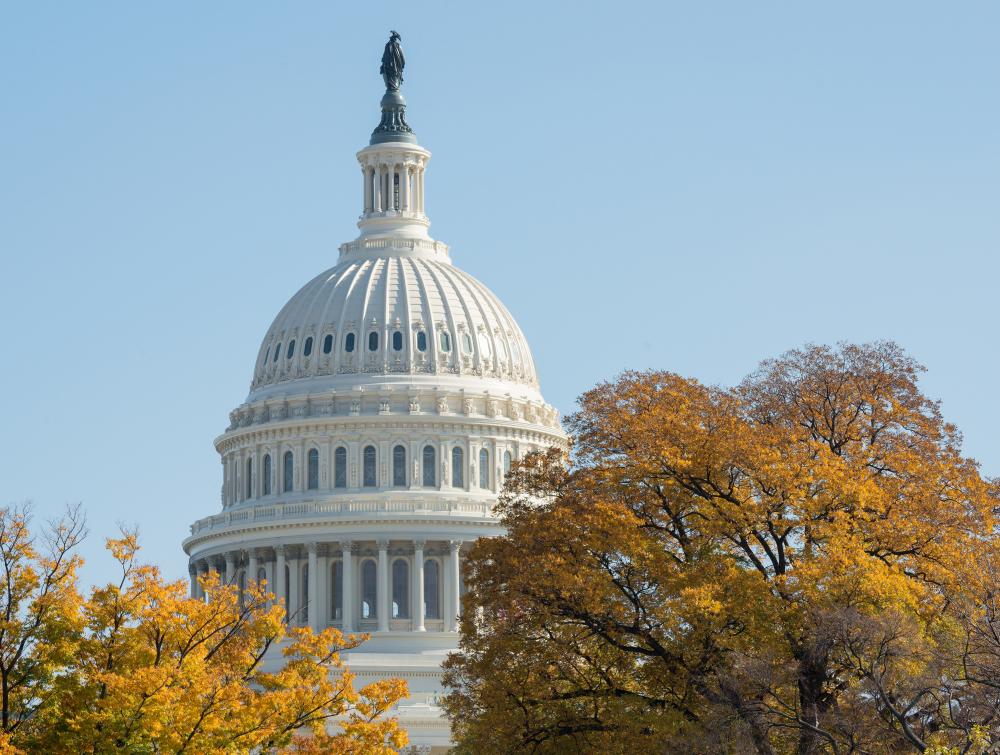Wilderness Society comments on proposed rollbacks of NEPA rules

U.S. Capitol Dome in Washington, DC
Mason Cummings (TWS)
Wilderness Society letter re CEQ-2019-0003, Proposed Revisions to Regulations Implementing the National Environmental Policy Act
March 10, 2020
Ms. Mary Neumayr, Chairwoman
Council on Environmental Quality
730 Jackson Place NW
Washington, D.C. 2-5-3
Re: CEQ-2019-0003, Proposed Revisions to Regulations Implementing the National Environmental Policy Act
Dear Chairwoman Neumayr,
On behalf of our more than one million members and supporters, The Wilderness Society submits these comments on the Council on Environmental Quality’s (CEQ) proposed revisions to its regulations implementing the National Environmental Policy Act (NEPA). We are also a signatory to several other comment letters on the proposal, including the detailed technical comments submitted by The Partnership Project on behalf of hundreds of organizations.
Founded in 1935, The Wilderness Society is the leading conservation organization working to unite people to protect America’s wild places. With more than one million members and supporters, we have led the effort to permanently protect 111 million acres of wilderness and to ensure sound management of our shared national lands. Going forward, we see a future where people and wild nature flourish together, meeting the challenges of a rapidly changing planet. To accomplish that vision, we must work to ensure that public lands are a solution to the climate and extinction crises and that all people benefit equitably from public lands.
Of all our bedrock conservation laws, NEPA perhaps best speaks to the vision The Wilderness Society seeks to accomplish by enshrining democratic principles of transparency, public participation, and accountability into government decision-making. For fifty years, NEPA has served as our environmental “Bill of Rights,” protecting public health and safety and our environment, including the water we drink and the air we breathe. NEPA not only mandates that our government disclose the environmental and health effects of its authorization of mines, power plants, highway interchanges, and other major decisions, but it also guarantees the public a voice and a process to participate in decisions that could impact their lives.
It is no surprise, then, that The Wilderness Society, its members, supporters, and partners have relied on NEPA since its inception to advocate for sound management of our shared national lands. We have engaged in countless NEPA processes over the last fifty years – everything from small local decisions on a particular national forest ranger district to sweeping national regulatory changes. Through those NEPA processes, we have had decades of productive and informed dialogue with federal land managers, local communities, tribes, and other stakeholders that paved the way for decisions to protect roadless and wilderness-quality lands, policies to reduce climate pollution from fossil fuel development on public lands, and management plans for newly established national monuments and other crown-jewels of our federal public lands system, to name just a few. Through NEPA, we have also been able to hold the government accountable where it fails to uphold the promises of an informed and transparent decision-making process.1 Conversely, we have stood by federal agencies in defending decisions that were based on solid NEPA analysis.2 This is precisely how Congress intended NEPA to work, and – while not perfect – the statute and CEQ’s 1979 implementing regulations have stood the test of time.
CEQ’s proposal to overhaul its NEPA regulations3 runs counter to the fundamental principles enshrined in the statute, decades of caselaw, and long-standing agency practice. Many of the proposed provisions are unlawful on their face or, at the very least, invite unlawful interpretations, as explained in detail in the technical comments submitted by The Partnership Project on behalf of The Wilderness Society and hundreds of other organizations. In an attempt to cement this Administration’s “regulatory reform” and “energy dominance” agendas, CEQ’s proposal would put polluters first and make it difficult for affected communities to have a say in decisions affecting their health and the environment. The proposal would also have very real impacts on The Wilderness Society’s work to protect wild and sensitive landscapes threatened by mining, drilling, logging, and other extractive uses, make public lands part of the climate solution, and ensure that all people in the U.S. benefit equitably from public lands. While not intended to be comprehensive, these comments highlight several of the most concerning elements of the proposal, as they relate to our work.
Overall, CEQ’s proposal is deeply flawed and should be abandoned.4 If CEQ is genuinely interested in improving implementation of NEPA – a goal that we would support – then it should utilize taxpayer dollars to identify and solve the real barriers to effective and efficient NEPA analysis (like inadequate agency budgets and expertise for conducting reviews and facilitating meaningful public engagement) and invest in strengthening the law as we face dual crises of climate change and loss of biodiversity. Instead, CEQ is proposing to gut the law at a time when we need it more than ever. Adding insult to injury, it is doing so based on a grossly inadequate public process – proposing to drastically overhaul 40 years of NEPA law and practice based on a short 60-day comment period and only two public hearings with access restricted to pre-registered “speakers” and “listeners.”
SEE FULL TEXT OF THIS LETTER AT THE LINK BELOW.
